Missouri FFA TODAY




rom social media to websites and writing to design, agricultural communications is a diverse field that continues to grow. Missouri FFA members have the opportunity to explore this career path through both their Supervised Agricultural Experience (SAE) and the Agricultural Communications Career Development Event (CDE), a newer CDE in Missouri hosted by Missouri State University.
“The agriculture communications CDE is an event that focuses on developing FFA members’ written, verbal and media communication skills,” shares Taylor Howell,
an agricultural education teacher and FFA advisor in Columbia. “Students act as communication consultants and develop a media plan for an assigned scenario, as well as do practicums based on journalistic news writing, video production, web design and opinion writing. The scenario identifies a client with a communications need and a budget. The team works to fulfill the stated needs.”
Columbia FFA placed first in the state Ag Communications CDE in 2022, competing at National FFA Convention this past
2022-23 State ffa officers

Colton Roy • Trenton President
Hannah Rice • Brunswick 1st Vice President
Jodi Robinson • Richmond Secretary
Vice Presidents
Grace Doss • West Plains
Katie Fredrickson • Carl Junction
Cody Garver • St. James
Cooper Hamlin • Crest Ridge
Jason Holland • Eldon
Aubrey Jung • Perryville
Jacob King • Dadeville
Emily Nelson • Joplin
Kate Rogers • South Harrison
Allison Schneider • Silex
Malerie Schutt • Hermann
Annamarie Stone • Centralia
Morgan Watkins • Fort Osage
State Officer Mentor
Hannah Shanks
Department of Elem. & Sec. Education
P.O. Box 480, Jefferson City, MO 65102 Phone: (573) 751-3544.
District Supervisors: Teresa Briscoe, Marie Davis, Keith Dietzschold, Lisa Evans, Phil Fox, David Higgins & Jim Spencer.
Missouri FFA Association
Joann Pipkin, Director of Communications
Email: joann.pipkin@missouriffa.org
Phone: (417) 827-2756
Brandelyn Martin Twellman, Social Media Manager Email: brandelyn.twellman@missouriffa.org
The Department of Elementary and Secondary Education does not discriminate on the basis of race, color, religion, gender, gender identity, sexual orientation, national origin, age, veteran status, mental or physical disability, or any other basis prohibited by statute in its programs and activities. Inquiries related to department programs and to the location of services, activities, and facilities that are accessible by persons with disabilities may be directed to the Jefferson State Office Building, Director of Civil Rights Compliance and MOA Coordinator (Title VI/Title VII/Title IX/504/ ADA/ADAAA/Age Act/GINA/USDA Title VI), 5th Floor, 205 Jefferson Street, P.O. Box 480, Jefferson City, MO 65102-0480; telephone number 573-526-4757 or TTY 800-735-2966; email civilrights@dese.mo.gov
couple of months ago I couldn’t have been more excited for the break that was quickly approaching. With a month of no classes, I was going to be able to get so much done. I had a trip planned with my best friend, I was going to spend some time with my family, and I knew that meeting some amazing individuals while facilitating at Greenhand Motivational Conferences was in my future. The best part, I had two whole weeks with nothing to do except prepare for the upcoming spring and all the activities it had in store; however, in the moment, the last thing on my mind were the items that had accumulated on my to do list. Well, that’s a lie. They were on my mind— at the forefront— I just chose to ignore them and partake in less productive activities. The motivation was not there. Now, as I sit down to write this article, I still find myself easily distracted. Typically, spending countless hours on TikTok or Instagram, entering a mind numbing, false reality where time passes quickly, and nothing seems to matter. Embarrassingly, I will admit that this simple three-hundred-word entry
has taken me over a week to complete. It’s quite odd though, when asked by anyone, I could honestly say that our organization far surpasses any other item on my list of priorities. So, why? Why can I not find the will to be productive? It’s the question I have asked myself constantly since sitting down at my computer 30 minutes ago.
All too often we find ourselves focusing on insignificant things, items or activities that we would deem not important or that would fall low on our list of priorities. Unfortunately, most of the time we let them dictate what we spend our time doing. If I have learned one thing throughout the past year, spending our time on pointless tasks or mundane experiences is the last thing we should let happen. It is important to take note of the areas of our lives that matter the most and that we understand our priorities. Sometimes, when our motivation is lacking, we must let our discipline take over. Every now and again it’s difficult, but the way we live should reflect that list of priorities, regardless of our inspiration, and we shouldn’t let anything stand in our way.



oin us April 20-21, 2023 for the 95th State FFA Convention! Missouri FFA members will be back at the Hearnes Center in Columbia to compete in Career and Leadership Development Events and to celebrate their accomplishments. Watch for additional convention details, including guest speakers, in the April issue of Missouri FFA Today. Meantime, sharpen your skills and we’ll plan to see you in Columbia!


richmond ffa
University of Missouri-Columbia, Agribusiness mgt/ public policy



MY sae:
I am employed by Moyer Farms, a produce farm where I work in the store and help manage the produce that comes in and out of the barn. I also own and operate JR Livestock, a show lamb and pig business with my brothers.


my advice:
First, find your niche — whether that’s in FFA or another activity. Second, find people who will push you to your full potential. Being comfortable is easy, but when we make ourselves uncomfortable, we become our best with the help of those that give us an extra push.
eldon ffa
northwest missouri state university, mass media
MY sae:
My SAE consists of agricultural communications and the social media brand, “My FFA Experience.” The program was recently featured on RFD-TV and helped me earn the 2022 State Proficiency Award for Ag Communications.
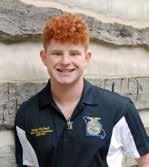

my advice:
Your time and experience in FFA is what you make of it. If you choose not to explore new opportunities, you are not going to have the same exciting experiences as someone who does. Get outside of your comfort zone. Once you discover what you love to do, stick to it. Your talent is your own!
98% PLACEMENT RATE
HANDS-ON EXPERIENCE


98% PLACEMENT RATE EXPERIENCE
AGRICULTURAL LEARNING CENTER NOW OPEN




AGRICULTURE & NATURAL RESOURCES


HANDS-ON LEARNING

#1 college in the nation
SIX DEGREES AND CERTIFICATES
LEADERSHIP OPPORTUNITIES
through PAS and Livestock Judging at the state and national levels.


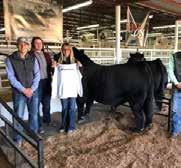
in the classroom and in the field at the Barton Farm Campus. in the area of agriculture for transfer or career students. NCMISSOURI.EDU
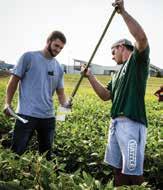

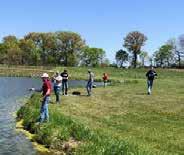
Sydney Thummel
Home FFA Chapter: Worth County R-III
What Sydney does: Sydney is the executive director of the Missouri Beef Industry Council.
What she Learned in FFA: Sydney says FFA helped her learn how to effectively communicate and redistribute knowledge in a more effective manner. She also learned how to work with others and embraced how to be exactly who she is.
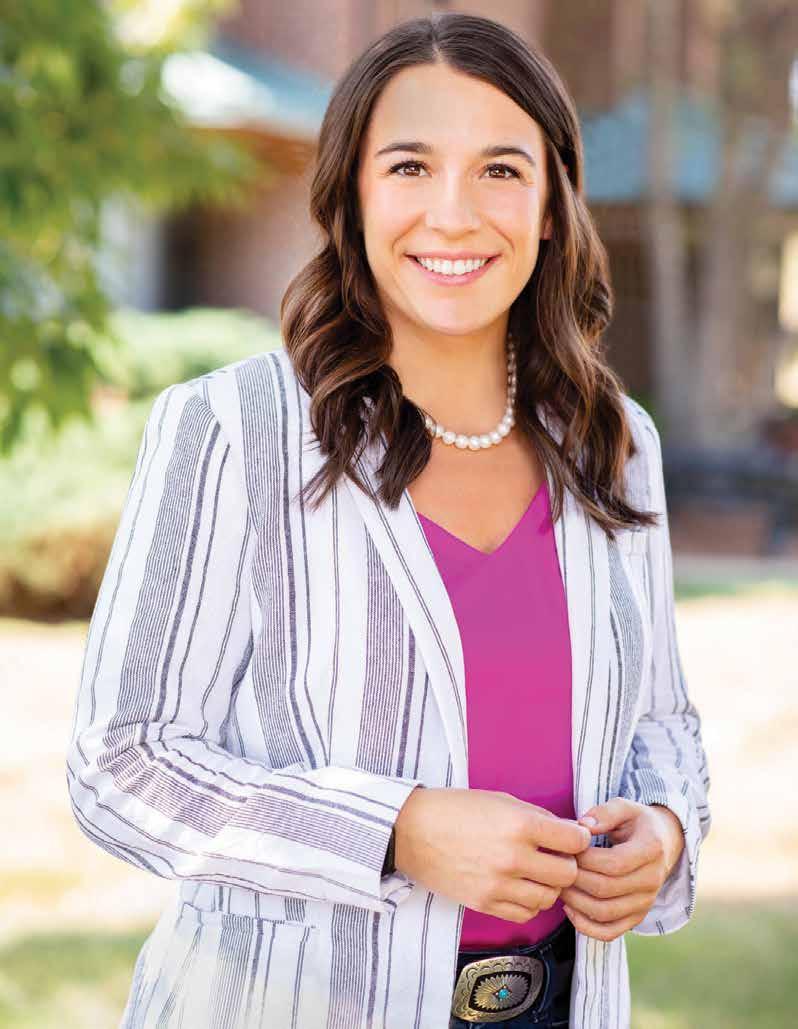
ydney Thummel’s involvement in agricultural education and FFA in high school has brought the young 20-something full circle.
Today, she’s executive director of Missouri’s Beef Industry Council, but it was her experiences in FFA career and leadership development events and at home on the family farm that helped prepare her for the job world. In her role at MBIC since fall 2022, Thummel works as a liaison between beef producers and consumers. Prior to joining MBIC, she was manager of membership for the Missouri Cattlemen’s Association.
“The entirety of our county attended school in Grant City at Worth County R-III and class sizes ranged from about 20 to 30 students,” Thummel explains. “Because the school is so small, we all participated in just about every extracurricular activity available, but my favorite was always FFA.”
The small, rural Northwest Missouri community of Sheridan was home to Thummel and her two older brothers, who worked alongside their parents on the farm, growing corn and soybeans and raising commercial and registered Angus cattle. In high school, Thummel took part in prepared public speaking as well as parliamentary procedure, meats, dairy and livestock evaluation. Her beef production Supervised Agricultural Experience (SAE) earned her Star Chapter and Area Farmer honors. She also served in leadership roles
as chapter secretary and president and area treasurer.
After high school, Thummel studied agricultural business and communications at Northwest Missouri State University in Maryville, graduating in December 2018. She went on to earn her master’s in business administration from NWMSU last fall.
Since moving to Columbia and taking an active role in the Missouri beef industry, Thummel has managed the largest commodity fall speaking contest, helped judge both SAE project and spring speaking contests at the state level, and
continued on next page
By Joann Pipkin
“I really learned how to work with others during my time in FFA, but more than that I learned how to be exactly who I am.”
–Sydney Thummel, Executive Director, Missouri Beef Industry Council
from page 9
has tried to support and mentor as many young members interested in bettering the agricultural industry as possible.
She says, “I would not have been able to go and achieve nearly as much as I did while in high school or college as I did without various industry members and school staff taking notice and helping me along the way. I hope I can do even a fraction for another student as what has been done for me.”
FFA and agricultural education provided Thummel an opportunity to develop and hone a wide variety of skills. She says having knowledge might be important but knowing how to effectively communicate and redistribute that knowledge to inquiring minds is invaluable.

“Missouri FFA provided the avenue through which I could develop those skills,” Thummel says.
In addition to the traditional thought about programs in FFA, Thummel says she benefited from some not-so-obvious areas as well.
“I traveled to county, area, state, and national events with FFA that brought a unique exposure to peers from different areas and cultures,” she explains. “It was from these students that I learned to take into consideration that not everyone has the same thought process, and everyone brings a unique mindset and background into every conversation.”
In her role at MBIC, Thummel says there are obvious areas that FFA helped
“If you become comfortable with being uncomfortable now, there are so many more fun and unique opportunities that will await you you in the future.”
–Sydney Thummel, Executive Director, Missouri Beef Industry Council
Former FFA member sydney thummel works as a liason between beef producers and consumers in her role as executive director of the Missouri Beef Industry council. Thummel’s beef production sae earned her area star farmer honors when she was in high school and speaking contests helped further prepare her for her career.

her develop skills she uses every day in her career. From public speaking to organizational to time management, she says the relatability and empathy gained as a result of her exposure to other areas outside of her small, rural community did the most.
“I really learned how to work with others during my time in FFA, but more than that I learned how to be exactly who I am,” Thummel says. “There is a sense of groupthink that can sometimes develop when in organizations designed to develop our future, but FFA also provided the opportunity to see what each member excelled at as an individual and to develop those skills even further. Being a strong individual within a group of strong individuals that also know how to all work together is where true magic happens.”
Thummel’s advice to current FFA members is to get out of your comfort zone. “Just do it,” she says. “It is so much easier now, though it might not feel like it. If you become comfortable with being uncomfortable now, there are so many more fun and unique opportunities that will be available to you in the future.”
As she embraces her new career at MBIC, Thummel says she looks forward to continuing to support FFA in any way she can.
“It feels very full circle and one of the best ways I can give back to an organization that has done so much for me,” she says.
very fourth week in February, FFA members from across the U.S. dedicate an entire week to celebrating the history of this great organization. Shortly after National FFA Week, CDE and LDE contest season begins, bringing a new level of diligence for practice, preparation, anticipation, and performance in competition. There is a lot of room for fun and creative ideas for FFA Week activities. National FFA Week is a time to embrace camaraderie, fellowship, and fun, but it is also a time to embrace appreciation. As members of this organization, we should always be appreciative of the countless number of opportunities and resources that FFA provides.
CDE and LDE contest season was my favorite time of the school year. Being able to participate in these competitions was always a thrill to me. There was just something about getting on a school bus at 6:30 a.m. on a cold Saturday morning that always made me excited for competition. You might be hesitant to participate in an LDE or CDE, but if you have the chance, take that opportunity, and run with it. There are so many choices that you should find an activity that you are interested in. You might even try competing in both types of competitions. You can absolutely find a contest that meets your interest or passion.
Success is something that we all desire and strive to achieve, but unfortunately, success is not handed out. For you to experience success, you must earn it. You might place first in state with a CDE or LDE. You might place last in one of these events. No matter the placing, just remember that the willingness to try to make yourself better is a success.
Appreciate the opportunities offered by the National FFA Organization. Compete to make the best YOU possible. Challenge yourself and put yourself in the position to succeed.
—By Jacob KingOctober. Charlie Hazelrigg, a Columbia FFA member who competed on the Agricultural Communications team, says she enjoyed learning the diverse portions of the contest while settling into her own communications strengths.

“I love graphic design, so my favorite part was creating graphics to be used throughout the media plan,” Hazelrigg says.
While the CDE includes a robust set of practicums that test a multitude of skills, Howell says the work put in to learning these services is worth it.
“This CDE is a lot of work, but it is extremely rewarding in the fact that students walk away with knowledge they will literally use for a lifetime. I love the other CDEs and feel they help students in a variety of ways with a variety of skills, but I have started encouraging more students to do Ag Communications because they learn so many skills that will help them be more well-rounded adults in the future, no matter what career they go into.”
These career skills include how to develop, assess and manage a budget, how to develop a media plan for a target audience, the ability to research accurate information, writing skills, video production, interview skills, web design and more.
Industry partners have noticed the benefits of this CDE.
“The students have to listen to a real press conference related to agriculture, take notes and ask questions,” Howell says. “They are then assigned tasks based on the press conference. Before all of this, they are tasked with creating a media plan on a given scenario. I’ve
been told by several people in the industry that the media plans they create for this contest are extremely similar to what they would have to do in a real communications career.”
Students also feel the CDE sets them up for success in the industry.
“Before this CDE, I didn’t know much about the agricultural communications industry,” Hazelrigg shares. “It’s an industry that’s always growing and changing, and one that will always be here. I grew passionate about all the different pieces the industry has to offer. I think the thing I learned the most is the opportunities that are out there. There are so many vastly different opportunities in the communications industry. There is truly something for everyone.”
In addition, Howell says the Agricultural Communications CDE fits nicely into her classroom curriculum.
“I have an entire unit that is directed toward agriculture communications in my ag business, leadership and communication class. We break down the Ag Comm CDE because it is so relevant to the real world. Each student learns journalistic writing, opinion writing, web design and video production. We look at what a media plan entails and they develop a “mini” media plan. We also do a couple of editing quizzes, as they help students learn how to make proper editing marks.”
Howell encourages other chapters to jump in and try this newer CDE.
“I start training the team as soon as the new scenario comes out,” she explains. “I start by having team members brainstorm ideas for the scenario. They are then tasked with splitting up the media plan and get to writing. It is a huge task and usually takes a solid month to two months to write the media plan, so it’s important to begin early. Once the media plan is complete, we move onto focusing on their individual practicums.”


EXCELLENT RESOURCES











You’ll have a greenhouse, labs, the latest equipment and 84 sprawling acres at your fingertips.
SO MANY OPTIONS
Whether your interest is in plants, animals or both, the Agriculture Program has you covered.
APPLY TODAY OTC.EDU





A GREAT START


Earn your associate degree, then either begin your Ag career or transfer to a four-year college.
CHOOSE A STRATEGY THAT PROVIDES CRITICAL WEED CONTROL THROUGHOUT THE SEASON AND BEYOND.




ADVANCING CHEMISTRY TO ADVANCE AGRICULTURE

very spring we do a controlled burn in some of our pastures. Maybe you have controlled burns at your farm.
Lighting a field on fire is interesting and can be pretty scary, too.
There is a lot of preparation that goes into this process. My husband mows a fire line around the part we want to burn. If we didn’t mow these fire lines, the fire would burn out of control, because there would be an endless supply of tall dead grass to catch on fire.
The idea is that the fire line will help the fire slow down enough and either go out on its own for lack of fuel, or someone with a blower will use the blower to get it fully out.
Unfortunately, when we were burning last spring, our fire lines were too narrow and the wind picked up from the south—and all of a sudden the fire jumped across the fire line and got away from us quickly.
As we raced across to the north, we were lucky to have the gravel road as a natural stop. But the fire was growing quickly to the west, headed straight for our neighbor’s pasture full of cattle.
The fire line had been sufficient when the wind conditions had been calm and ideal. But when the wind picked up unexpectedly, the lack of
proper margin was leading us into potential disaster.
We were all full of adrenaline as we worked to stop the hot, tall, scary flames as best we could. I’ll be honest, my heart is racing pretty fast even now as I tell you the story!
Having an uncontrolled fire took EVERY OUNCE of my energy and attention in that moment.
You have probably heard the saying: Where your eyes go, your thoughts will follow. Believe me, my eyes were locked in on the potential threat of those flames and my thoughts were racing with adrenaline–not the good kind, but the anxious kind!
Do you ever feel like you’re in this emergency firefighting mode at school or home? Have you prepared your fire lines adequately, or is your margin too narrow like ours was?
When the calmness of life turns a little more out of control, does your margin hold boundaries to keep you at healthy levels of operation?
Let me ask you this: how great is your work when you are in a chronic state of adrenaline, fatigue and burnout?
I can tell you from my experience (and plenty of research that backs this up), your work will suffer, and so will the other important things that matter to you in life.
I wish I had known this lesson when I was in school. I kept myself so busy with activities, that I sometimes was just trying to keep my head above the water going from one thing to the next.
I looked around and saw the successful professionals I look up to moving at a fast pace. I assumed, without any thought, that was the only way to be successful. I now see that constant movement can take a toll. Are you fully invested in your commitments? Are there any that are taking time or energy away from the things you really care about? Learning to prioritize is a really important skill you will need as an adult, so why not start practicing your prioritization skills now? Invite an adult you trust to help you assess your current and future levels of involvement!
—By Whitney KinneA former FFA member, Whitney Kinne is a career and leadership coach from Clinton, Missouri. She helps professionals of all ages and stages establish and accomplish their career goals in agriculture and beyond. She also speaks and facilitates strengths-based leadership workshops for businesses and organizations.


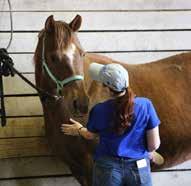
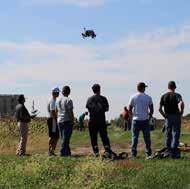


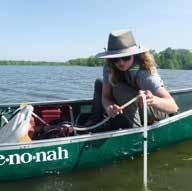



ver the past year, as the Missouri FFA Foundation has increased funding for agricultural education activities across the state, we’ve been fortunate to receive donations from individuals looking to support this expansion and growth. Recently, the Missouri FFA Foundation Board of Directors met to establish gift acceptance and gift handling policies. Recognizing that the act of giving is deeply personal for donors, these policies provide donors with clarity on how their donations will be used, ensure equal treatment of all donors, and help foster sound mission and fiscal management of the organization.
If you have considered supporting the Missouri FFA Foundation, the Board of Directors has identified a variety of methods of giving enabling you to choose the most appropriate for your circumstances and interests.


Cash is acceptable in any form, although check and credit/debit card donations are the preferred forms.
The Foundation may accept gifts of tangible personal property, including agricultural products, works of art, jewelry, antiques, coin, stamp and other collections, automobiles, manuscripts, lithographs, and books. Before contributing a gift of tangible personal property,
please consider if you are willing to allow the Foundation to dispose of the property.
You may be able to donate publicly-traded securities, shares of stock and other interests in closely-held companies, bonds, and government issues to the Foundation. As a general rule, all marketable securities shall be sold by the Foundation upon receipt.
Based upon review of the Board of Directors, the Foundation may also accept shares of closely-held securities in the same manner as publicly-traded securities. The Foundation will not accept any donation of general partnership interests. It is the Foundation’s policy to convert closely-held securities to cash.
The Foundation may accept a gift of real estate including residential, condominiums, commercial, farm land, rental property and undeveloped land, after a thorough review of a multitude of factors, including the usefulness and/or marketability of the property; the existence of restrictions, encumbrances, and carrying costs; fair market value in relation to the costs; and an environmental audit.
When appropriate, the Foundation may accept your gifts of oil and gas property interests. Prior to acceptance of an oil and gas interest, the gift shall be approved by the Foundation’s Board of Directors, and if necessary, by legal counsel.
As a donor, you may assign to the Foundation an existing life insurance policy that is no longer needed for family protection, irrevocably making the Foundation both the policy owner and beneficiary. The gift is valued at its interpolated terminal reserve value, or cash surrender value, upon receipt. It may also be possible for you to purchase a new life insurance policy for gift purposes to the Foundation.
Each of these gifts have different tax-advantages and it’s prudent to consult with your tax advisor to identify which may provide you with the best benefits.
Also, if you work for a larger company, consider checking with your HR department to see if the company offers a giftmatching program. With this type of program, companies will often match your donation up to a certain amount. While the maximum donation amount companies are willing to match will vary, this can effectively double your contribution and your gift’s impact.
You can support programs for Missouri FFA members, along with other agricultural education students and teachers by donating online at https://donorbox. org/moffafoundation. If you would like to discuss other ways to provide support, including additional criteria or procedures for accepting each of these types of gifts, please contact Heather Dimitt-Fletcher, Missouri FFA Foundation executive director at heather@missouriffa.org.



